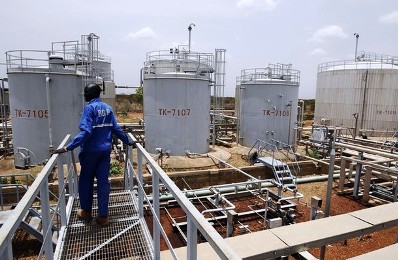S. Sudan threatens to terminate oil exploration contracts
March 22, 2017 (JUBA) – South Sudan has threatened to terminate contacts awarded to oil exploration companies should they fail to start surveys by the end of April.

Gatkuoth gave the companies till the end of April to implement the exploration agreements. These companies include Total and Tullow. These companies were awarded two blocks, Block B1 and Block B2.
Minister Gatkuoth told reporters on Tuesday evening after a meeting with some of the oil companies in Juba that any company that fails to implement their contracts would have their contracts terminated.
“You cannot hold my block for 30 years and think that I will be celebrating and dancing with you. This is my resource and it is my country and it is my oil. You must do it my way and if you don’t do it my way, get out,” the minister told reporters.
It was not clear what prompted such unprecedented diplomatic remarks from the minister.
Total started oil exploration in Sudan, before South Sudan became independent, in the 1970s. Activities ceased following the outbreak of war in 1983 in Jonglei state. The giant oil company returned to Jonglei after the 2005 Sudanese Comprehensive Peace Agreement that guaranteed self-determination vote for South Sudan in 2011.
Since its independence, South Sudan has relied on oil for all income—a situation that has significantly compounded ongoing political and economic instability due to the fall in crude oil prices.
According to South Sudan officials, production in the past reached as high as 350,000 bpd but fell after a dispute with Sudan over fees for pumping South Sudan’s crude through Sudan’s export pipeline, which led South Sudan to halt production in 2012.
South Sudan got the lion’s share of the oil when it split from Sudan in 2011, but it’s only export route is through Sudan, giving Khartoum leverage and leading to ongoing pricing disputes.
(ST)
